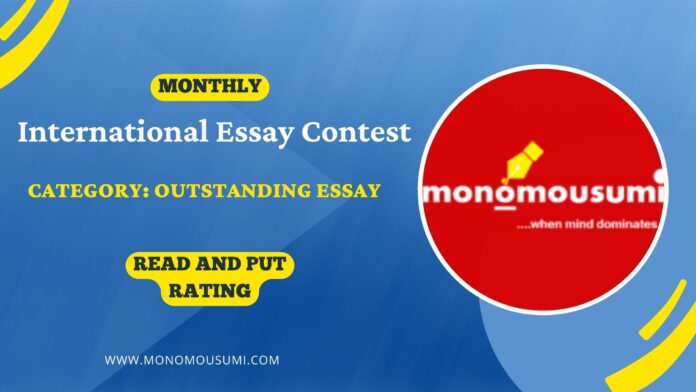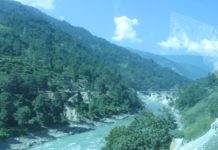“Environment is no one’s property to destroy. It’severyone’s responsibility to protect.”
-Mohith Agadi-
A clean environment is a source of happiness. Unfortunately, the accumulation of waste makes a clean and healthy environment unable to be fully experienced. In fact, a clean and healthy environment has such a big role for the survival of all creatures in it. One of the obstacles to realize a clean and healthy environment is the waste problem that seem to be endless in the world. Globally, the world produces more than 2 billion tons of solid waste every year. Worse yet, the volume of waste is predicted to continue to increase every year and cause major impacts on the environment. The waste that continues to pile up in the end will only bring pollution, flowing into the world’s rivers and seas, disturbing the life of animals in their habitat, and even becoming a source of disease for the contributors of the waste itself, namely humans.
Humans are the ones who create various packaged products. Humans are the ones who consciously use these products for their daily needs. Humans are also the ones who consciously throw away the rest of the products from their activities. Either scattered or in its place, all the rest of these products are waste which will also significantly harm human life if not managed properly. Waste is something that continues to be a scourge, including for Indonesia. Just imagine, from the 2 billion tons of waste in the world, it turns out that Indonesia is the contributor for nearly 68 million tons of that. In fact, Indonesia is the second largest contributor of plastic waste in the world. This data can describe how the condition of Indonesia, especially in urban areas. It will be easier for us to find areas littered with trash than areas that are clean of it. So, how and in what way can this entire chain of waste accumulation be cut off and not continue to worsen the condition of the earth?
Disposing of waste in its place (trash can) is one of the steps to protect nature. However, many people still do not know that these efforts still need to be accompanied by other steps. This is because the waste that we dispose of in landfills will eventually be taken to final landfills, which are often not managed in a sustainable manner. The final processing of waste in Indonesia itself generally still uses methods that are less environmentally sound, such as open dumping and landfill systems which can contaminate soil and water, thus contributing to carbon emissions which can exacerbate global warming. For this reason, proper waste management, from the process of transportation, disposal, to final processing must be carried out properly while being safe for the environment.
One of the methods used by many developed countries in managing waste in their country is by using a waste power plant. Although not much has been developed in Indonesia, the waste power plant is one of the solutions that the current government is trying to develop. A waste power plant is a system for generating electrical energy that originates from leftover products or household waste which is then heated to high temperatures and produces steam to spin a turbine that produces electrical energy. As a result, the state is not only able to reduce landfill waste but is also able to increase the supply of electricity to be distributed for its citizens. However, these plants need to be built carefully and equipped with high technology. The goal is that all processes that occur in it do not cause emissions or other harmful substances which can actually reverse conditions as before.
If the state is deemed unable to build power generation facilities with good safety for humans and environment, then there are still many other alternative ways to keep addressing the impact of waste on the environment. Reduce, reuse, recycle, and replace or what we usually know by 4R is one of them. Unlike final processing which is the responsibility of the government, 4R is an waste minimization efforts from humans themselves which can and must be done by everyone for the sake of cleanliness and environmental health. Reduce, means that we reduce the use of products that can become waste, especially undegradable waste, such as reducing the use of plastic. Reuse, means that we reuse the leftover products which can still be used, such as using a plastic bag repeatedly for all purposes. Then, recycle is the time for us to change leftover products that can no longer be reused into other products that are also beneficial to human life. The fourth is replace, namely by replacing the use of products that are difficult to decompose in nature, such as plastic, into environmentally and friendly products. A simple example is replacing a plastic straws into paper straws.
Beside the 4R principles that must be understood and applied by all humans, processing waste into various environmentally friendly products is another alternative. The world is already familiar with the term biofuel, such as biogas, bioethanol, and biodiesel. This biofuel is produced from organic materials, including waste, to be processed into fuel that powers machines or vehicles. There are lots of unused residues from a plant that can be processed into biodiesel and bioethanol in the form of fuel oil. Even that the unused residue from animals can also be processed into biogas which is capable of producing electricity. Indonesia as a tropical country is a country that is rich of biodiversity. As a mega-biodiversity country, it is not difficult for its people to find remaining biological products in the surrounding environment. Even though this type of waste is classified as biodegradable and does not cause as bad impact as waste that is difficult to decompose, recycling it into energy is a wise step to protect the environment better. Banana fronds, castor beans, tubers and coconut tree trunks, oil palm shells, and various other organic wastes can be processed into biofuels that are beneficial to humans and nature. In fact, today’s banana peels can also be transformed into products that absorb carbon emissions in the air. These ideas for developing waste into environmentally friendly products do not have to be sourced and driven only by the government, but can come from anyone, including the young generation.
The environment is a mirror of its inhabitants. A clean environment reflects the sacred hearts of the people around it, while an environment which full of trash shows that the residents are the ‘trash’ itself. Indonesia has long been committed to protecting the environment and fighting waste. There have been many steps taken by the government and a number of its citizens to minimize the impact of waste on the earth. However, in fact, until now the environment that is littered by waste is still easily found in this country. Are you looking for waste? You can find it everywhere. Are you looking for a clean place? You can find it so difficult. This is proof that the environment is a shared responsibility. Not only for the government, but also its citizens. Not only for a number of citizens, but all of them without exception. One good move and effort would go a long way, but it would be outweighed by hundreds of bad moves against it, right? Thus, let us, together, protect the environment wherever we are. Earth needs our kindness and care. Let us preserve the 4R culture, dispose of waste in its right place, and continue to learn for developing various environmentally friendly products. Let us protect and preserve nature, in Indonesia and all over the world, so that in the future we can hear this conversation.
“Where is the waste?”
“I dont know, there is no waste here.”
By: Noerul Hanin
Write and Win: Participate in Creative writing Contest & International Essay Contest and win fabulous prizes.
















